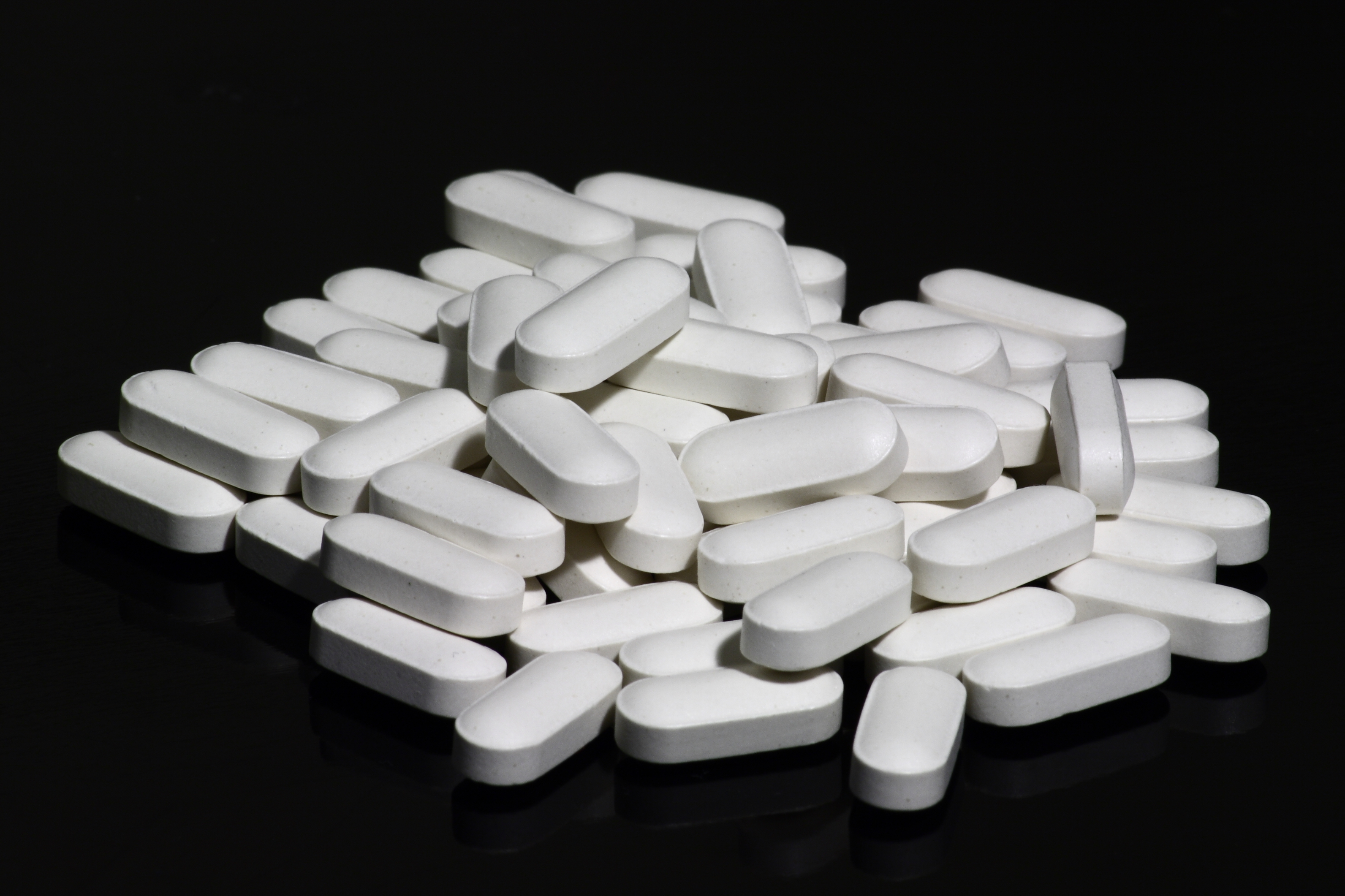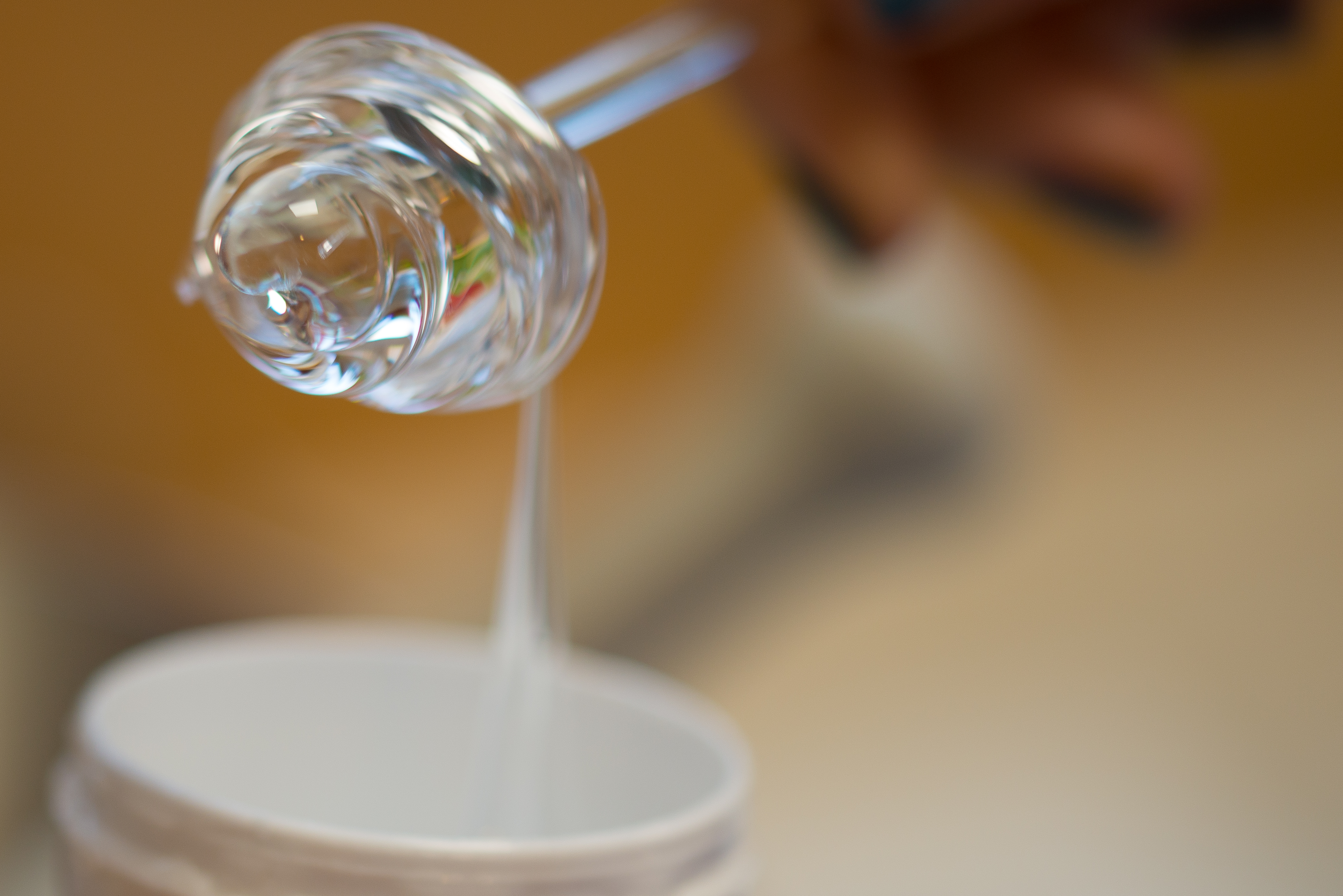|
Provitamin A
A provitamin is a substance that may be converted within the body to a vitamin. The term previtamin is a synonym. The term "provitamin" is used when it is desirable to label a substance with little or no vitamin activity, but which can be converted to an active form by normal metabolic processes. Some provitamins are: * "Provitamin A" is a name for β-carotene, which has only about 1/6 the biological activity of retinol (vitamin A); the body uses an enzyme to convert β-carotene to retinol. In other contexts, both β-carotene and retinol are simply considered to be different forms (vitamers) of vitamin A. * "Provitamin B5" is a name for panthenol, which may be converted in the body to vitamin B5 (pantothenic acid). * Menadione is a synthetic provitamin of vitamin K. * Provitamin D2 is ergosterol Ergosterol (ergosta-5,7,22-trien-3β-ol) is a sterol found in cell membranes of fungi and protozoa, serving many of the same functions that cholesterol serves in animal cells. Because many ... [...More Info...] [...Related Items...] OR: [Wikipedia] [Google] [Baidu] |
Vitamin
A vitamin is an organic molecule (or a set of molecules closely related chemically, i.e. vitamers) that is an Nutrient#Essential nutrients, essential micronutrient that an organism needs in small quantities for the proper functioning of its metabolism. Essential nutrients cannot be biosynthesis, synthesized in the organism, either at all or not in sufficient quantities, and therefore must be obtained through the Diet (nutrition), diet. Vitamin C can be synthesized by some species but not by others; it is not a vitamin in the first instance but is in the second. The term ''vitamin'' does not include the three other groups of essential nutrients: mineral (nutrient), minerals, essential fatty acids, and essential amino acids. Most vitamins are not single molecules, but groups of related molecules called vitamers. For example, there are eight vitamers of vitamin E: four tocopherols and four tocotrienols. Some sources list fourteen vitamins, by including choline, but major health ... [...More Info...] [...Related Items...] OR: [Wikipedia] [Google] [Baidu] |
Metabolism
Metabolism (, from el, μεταβολή ''metabolē'', "change") is the set of life-sustaining chemical reactions in organisms. The three main functions of metabolism are: the conversion of the energy in food to energy available to run cellular processes; the conversion of food to building blocks for proteins, lipids, nucleic acids, and some carbohydrates; and the elimination of metabolic wastes. These enzyme-catalyzed reactions allow organisms to grow and reproduce, maintain their structures, and respond to their environments. The word metabolism can also refer to the sum of all chemical reactions that occur in living organisms, including digestion and the transportation of substances into and between different cells, in which case the above described set of reactions within the cells is called intermediary (or intermediate) metabolism. Metabolic reactions may be categorized as ''catabolic'' – the ''breaking down'' of compounds (for example, of glucose to pyruvate by ce ... [...More Info...] [...Related Items...] OR: [Wikipedia] [Google] [Baidu] |
Biological Activity
In pharmacology, biological activity or pharmacological activity describes the beneficial or adverse effects of a drug on living matter. When a drug is a complex chemical mixture, this activity is exerted by the substance's active ingredient or pharmacophore but can be modified by the other constituents. Among the various properties of chemical compounds, pharmacological/biological activity plays a crucial role since it suggests uses of the compounds in the medical applications. However, chemical compounds may show some adverse and toxic effects which may prevent their use in medical practice. Activity is generally dosage-dependent. Further, it is common to have effects ranging from beneficial to adverse for one substance when going from low to high doses. Activity depends critically on fulfillment of the ADME criteria. To be an effective drug, a compound not only must be active against a target, but also possess the appropriate ADME (Absorption, Distribution, Metabolism, and ... [...More Info...] [...Related Items...] OR: [Wikipedia] [Google] [Baidu] |
Retinol
Retinol, also called vitamin A1, is a fat-soluble vitamin in the vitamin A family found in food and used as a dietary supplement. As a supplement it is used to treat and prevent vitamin A deficiency, especially that which results in xerophthalmia. In regions where deficiency is common, a single large dose is recommended to those at high risk twice a year. It is also used to reduce the risk of complications in measles patients. It is taken by mouth or by injection into a muscle. Retinol at normal doses is well tolerated. High doses may cause enlargement of the liver, dry skin, and hypervitaminosis A. High doses during pregnancy may harm the fetus. The body converts retinol to retinal and retinoic acid, through which it acts. Dietary sources include fish, dairy products, and meat. Retinol was discovered in 1909, isolated in 1931, and first made in 1947. It is on the World Health Organization's List of Essential Medicines. Retinol is available as a generic medication and over ... [...More Info...] [...Related Items...] OR: [Wikipedia] [Google] [Baidu] |
Vitamin A
Vitamin A is a fat-soluble vitamin and an essential nutrient for humans. It is a group of organic compounds that includes retinol, retinal (also known as retinaldehyde), retinoic acid, and several provitamin A carotenoids (most notably beta-carotene �-carotene. Vitamin A has multiple functions: it is essential for embryo development and growth, for maintenance of the immune system, and for vision, where it combines with the protein opsin to form rhodopsin the light-absorbing molecule necessary for both low-light (scotopic vision) and color vision. Vitamin A occurs as two principal forms in foods: A) retinol, found in animal-sourced foods, either as retinol or bound to a fatty acid to become a retinyl ester, and B) the carotenoids alpha-carotene, β-carotene, gamma-carotene, and the xanthophyll beta-cryptoxanthin (all of which contain β-ionone rings) that function as provitamin A in herbivore and omnivore animals which possess the enzymes that cleave and convert provi ... [...More Info...] [...Related Items...] OR: [Wikipedia] [Google] [Baidu] |
Enzyme
Enzymes () are proteins that act as biological catalysts by accelerating chemical reactions. The molecules upon which enzymes may act are called substrates, and the enzyme converts the substrates into different molecules known as products. Almost all metabolic processes in the cell need enzyme catalysis in order to occur at rates fast enough to sustain life. Metabolic pathways depend upon enzymes to catalyze individual steps. The study of enzymes is called ''enzymology'' and the field of pseudoenzyme analysis recognizes that during evolution, some enzymes have lost the ability to carry out biological catalysis, which is often reflected in their amino acid sequences and unusual 'pseudocatalytic' properties. Enzymes are known to catalyze more than 5,000 biochemical reaction types. Other biocatalysts are catalytic RNA molecules, called ribozymes. Enzymes' specificity comes from their unique three-dimensional structures. Like all catalysts, enzymes increase the reaction ra ... [...More Info...] [...Related Items...] OR: [Wikipedia] [Google] [Baidu] |
Vitamer
Vitamins occur in a variety of related forms known as vitamers. A vitamer () of a particular vitamin is one of several related compounds that performs the functions of said vitamin and prevents the symptoms of deficiency of said vitamin. Early research identified vitamins by their ability to cure vitamin-specific Vitamin deficiency, deficiency diseases. For example, vitamin B1 was Thiamine#History, first identified as a substance that prevented and treated beriberi. Subsequent nutrition research has revealed all vitamers exhibit biological activity against their specific vitamin deficiency, although different vitamers exhibit different potencies against those diseases. A set of vitamers with related biological activity are grouped together by a general name, or ''generic descriptor'', that refers to similar compounds with the same vitamin function. For example, ''vitamin A'' is the generic descriptor for the class of vitamin A vitamers which include retinol, retinal, retinoic aci ... [...More Info...] [...Related Items...] OR: [Wikipedia] [Google] [Baidu] |
Panthenol
Panthenol (also called pantothenol) is the alcohol analog of pantothenic acid (vitamin B5), and is thus a provitamin of B5. In organisms, it is quickly oxidized to pantothenic acid. It is a viscous transparent liquid at room temperature. Panthenol is used in pharmaceutical and cosmetic products as a moisturizer and to improve wound healing. Uses In pharmaceuticals, cosmetics, and personal-care products, panthenol is a moisturizer and humectant, used in ointments, lotions, shampoos, nasal sprays, eye drops, lozenges, and cleaning solutions for contact lenses. In ointments it is used for the treatment of sunburns, mild burns, minor skin injuries, and disorders (in concentrations of up to 2–5%). It improves hydration, reduces itching and inflammation of the skin, improves skin elasticity, and accelerates epidermal wounds' rate of healing. For this purpose, it is sometimes combined with allantoin. It binds to the hair shaft readily, so, it is a common component of commercial sham ... [...More Info...] [...Related Items...] OR: [Wikipedia] [Google] [Baidu] |
Pantothenic Acid
Pantothenic acid, also called vitamin B5 is a water-soluble B vitamin and therefore an essential nutrient. All animals require pantothenic acid in order to synthesize coenzyme A (CoA) – essential for fatty acid metabolism – as well as to, in general, synthesize and metabolize proteins, carbohydrates, and fats. Pantothenic acid is the combination of pantoic acid and β-alanine. Its name derives from the Greek ''pantos'', meaning "from everywhere", as minimally, at least small quantities of pantothenic acid are found in nearly every food. Human deficiency is very rare. As a dietary supplement or animal feed ingredient, the form commonly used is calcium pantothenate because of chemical stability, and hence long product shelf life, compared to sodium pantothenate or free pantothenic acid. Definition Pantothenic acid is a water-soluble vitamin, one of the B vitamins. It is synthesized from the amino acid β-alanine and pantoic acid (see biosynthesis and structure of coenzyme ... [...More Info...] [...Related Items...] OR: [Wikipedia] [Google] [Baidu] |
Menadione
Menadione is a natural organic compound with the formula C6H4(CO)2C2H(CH3). It is an analog of 1,4-naphthoquinone with a methyl group in the 2-position. It is sometimes called vitamin K3. Use is allowed as a nutritional supplement in animal feed because of its vitamin K activity. Biochemistry Menadione is converted to vitamin K2 (specifically, MK-4) by the prenyltransferase action of vertebrate UBIAD1. This reaction requires the hydroquinone (reduced) form of K3, menadiol, produced by an unidentified enzyme. Menadione is also a circulating form of vitamin K, produced in small amounts (1–5%) after intestinal absorption of K1 and K2. This circulation explains the uneven tissue distribution of MK-4, especially since menadione can penetrate the blood–brain barrier. The cleavage enzyme is yet to be identified. Terminology The compound is variously known as vitamin K3 and provitamin K3. Proponents of the latter name generally argue that the compound is not a real vitamin due to ... [...More Info...] [...Related Items...] OR: [Wikipedia] [Google] [Baidu] |
Vitamin K
Vitamin K refers to structurally similar, fat-soluble vitamers found in foods and marketed as dietary supplements. The human body requires vitamin K for post-synthesis modification of certain proteins that are required for blood coagulation (K from ''Koagulation'', German for "coagulation") or for controlling binding of calcium in bones and other tissues. The complete synthesis involves final modification of these so-called "Gla proteins" by the enzyme gamma-glutamyl carboxylase that uses vitamin K as a cofactor. Vitamin K is used in the liver as the intermediate VKH2 to deprotonate a glutamate residue and then is reprocessed into vitamin K through a vitamin K oxide intermediate. The presence of uncarboxylated proteins indicates a vitamin K deficiency. Carboxylation allows them to bind (chelate) calcium ions, which they cannot do otherwise. Without vitamin K, blood coagulation is seriously impaired, and uncontrolled bleeding occurs. Research suggests that deficiency of v ... [...More Info...] [...Related Items...] OR: [Wikipedia] [Google] [Baidu] |






.jpg)